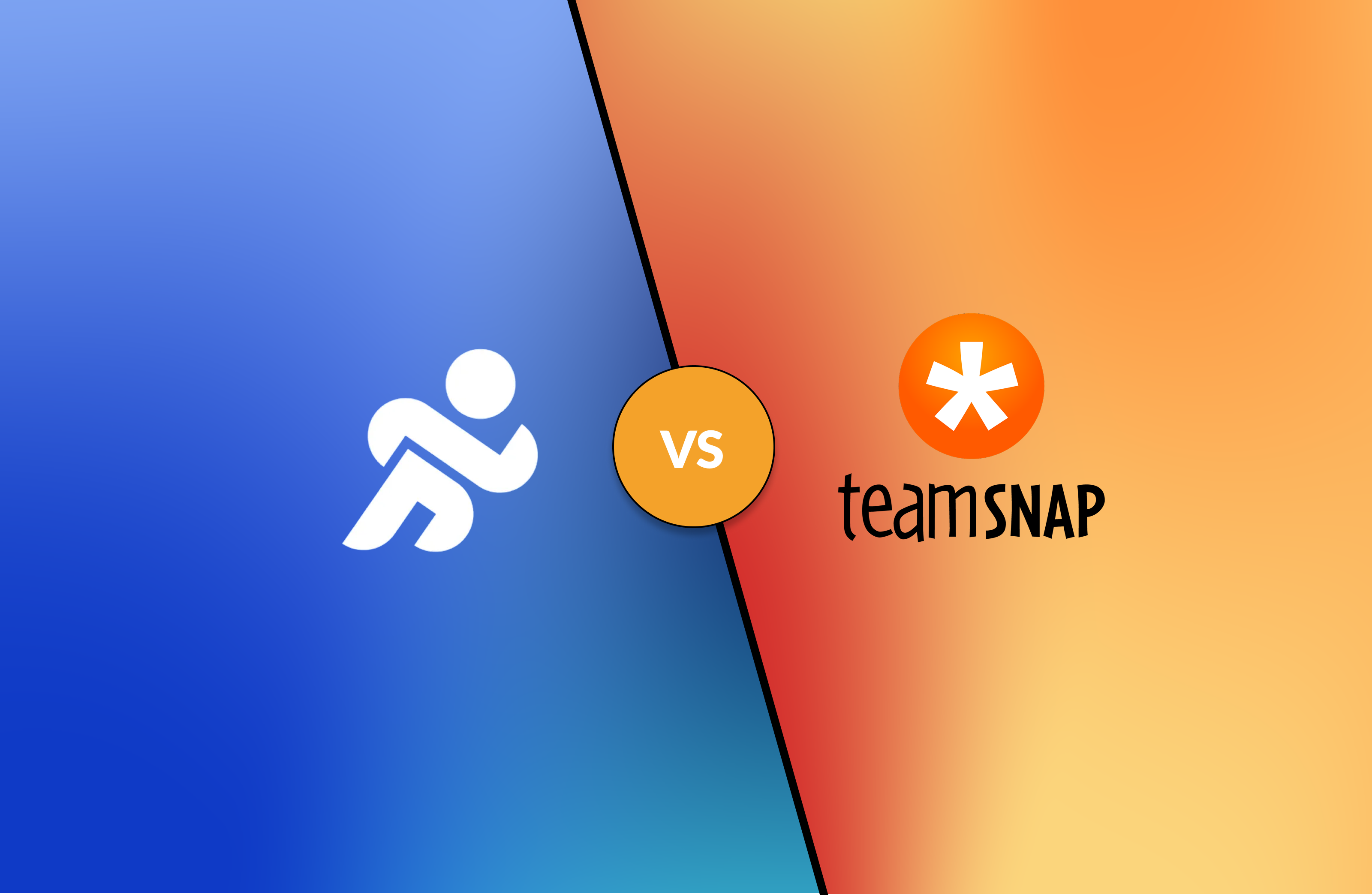The 6 things the MonClubSportif team has learned from the 11th Digital Education Summit 2023

On May 4 and 5, the 11th Digital Education Summit and the 10th International Symposium on Education were held in Montreal. Education experts from all over the world attended and led conferences. MonClubSportif was present for the first time, with the aim of introducing our platform to education professionals and introducing them to our service, which promotes healthy, safe and ethical sports in schools. We also had the chance to take part in a number of workshops and conferences, and here are the 6 points our team picked up on regarding the use of technology in education.
1. Technological tools don't replace teaching, they support it
From the outset, we must understand that technological tools are wonderful and full of advantages, but they will never be the solution to all teaching challenges. The teacher should always remain the central resource in the learning process. Technological tools never replace teaching, but simply support it. In the many discussions I’ve heard at conferences, the importance of human input has been emphasized. Let’s never forget that, after all, we’re talking about small, developing human beings, and that technology can only cover part of the big job of teaching.
2. Technological tools can provide more personalized instruction for students (Google Workspace, École branchée).
One notable advantage of using technological tools is the personalization of teaching. The teacher-student ratio varies according to age group, but it’s not uncommon in our Quebec school system to see 1 teacher for every 30 students. Personalizing feedback for each copy then becomes a particularly time-consuming and laborious task, although it should be prioritized. At a conference, Director of Pedagogical Innovation Alexandra Coutlée from École Branchée presented a strategy for countering this issue through Google Workspace. Students in the class create an account and complete their exercises and assignments in a google doc, which is then uploaded to a drive. The teacher can consult all the copies and add a comment in real time to adjust the feedback to each student. This centralization of information enables the teacher to intervene quickly and precisely to meet the needs of each student.
3. Technological tools can save teachers valuable time (google workspace, École branchée)
Are you a teacher who wants to integrate the use of Google Workspace into your classroom? It’s certainly one step closer to optimizing your precious working hours! The many tools offered by Google Workspace classify and centralize all your documents to help you manage the many tasks you have to complete in a day. Whether you’re on the playground supervising pupils or at a union meeting, the idea of the century suddenly springs to mind. No problem! Thanks to Google Keep, note-taking has never been easier or more efficient. It’s a virtual post-it note that lets you write a note. You can even make an audio note, which is automatically transcribed into your document. By adding the geolocation option, you can even associate your note with a location, enabling you to receive notification of your note when you enter the identified location. I’m thinking of the many minutes you spend as a schoolyard monitor. You notice that one of the students you’re supervising still hasn’t got his coat, even though the temperature has turned particularly cold. Simply open Google Keep, explain the situation aloud and save your automatically written note in your virtual space!
4. Technological tools expose children and school staff to certain dangers (educaloi)
Laws can sometimes be difficult to understand. Fortunately, there are organizations that make it easier to understand them by taking the time to popularize them, as Éducaloi does so well. In the conference Éducaloi gave at the summit, a subject of particular interest to MonClubSportif was addressed: cyberbullying. Did you know that, in Quebec, children aged 12 and over can be charged with a crime? It’s then with the Youth Criminal Justice Act (YCJA) that the accused child will have to deal. This child may be charged with the same crimes as adults, but the penalties will be different, and social re-incarceration is encouraged. Depending on the seriousness of the crime, the child will be prosecuted, from extrajudicial measures to extrajudicial sanctions, and finally to the Youth Division, where he or she will have to appear in court. It’s important to educate young people and make them aware of their use of electronic tools, but also to prevent it in your schools. Did you know that every school is obliged to have an anti-bullying action plan, and to respect it? With 75% of elementary school students in grades 4 to 6 having an electronic device, and 90% of high school students having one, it’s imperative to secure communications to provide a healthy environment for both students and teaching staff. With the new Bill 25*, school boards have a duty to equip themselves with technological devices that meet the requirements for safe technology use by their members. *The Act to modernize legislative provisions respecting the protection of personal information, also known as Bill 25, aims to protect Quebecers by making companies more accountable for the personal information they hold (Source. https://www.rcgt.com/fr/nos-conseils/loi-25-quels-impacts-entreprises/)
5. Technological tools force teachers to adapt their practices to the digital age (École branchée et Cadre21, IA chatgpt,)
The advent of technology is inevitable, and this is driving changes in the way teachers adopt new practices and master new skills. We’re faced with new questions, sometimes anxiety-provoking, but also with considerable advantages. You’ve probably heard about ChatGPT and the powers of artificial intelligence, and since then you’ve been a little skeptical. On the other hand, if I told you that teachers could reduce their workload, students could benefit from instant and personalized feedback, and principals could allocate teacher tasks without breaking their backs, would you be more open to discussion? In any case, it’s important to face the coming changes with an open mind, while remaining critical and nuanced, because there are indeed issues associated with these new features, despite all the benefits. One of the first steps is to rethink teachers’ professional development and encourage ongoing training to keep practices up to date. The government has set up a self-assessment questionnaire for teachers to guide them in choosing the continuing education activities that best meet their needs (https://formulaires.education.gouv.qc.ca/TUNMfr). In the new professional skills reference framework for the teaching profession (2021), there’s skill 12: Mobilizing digital technology. Are you up to date?
6. Technology tools are not evenly distributed in schools (ChromeOS Flex)
As we all know, a budgetary envelope can make a big difference in schools, enabling pupils to benefit from new equipment and school materials that are in better condition for use and adapted to the digital age. However, not everyone has the same privileges. How can we provide our pupils with my work tools without breaking the piggy bank? Good news! If your school has old computers, it’s possible to renew them and make them as efficient as they once were, thanks to ChromeOS Flex. It’s an operating system for PCs and Macs that’s fast, easy to manage and secure, as well as being a sustainable way to modernize the devices you already own. In just three steps, your old school computers will be as good as new!
1. Create a ChromeOS Flex bootable USB key and try out the operating system without installing it.
2. When you’re ready, install ChromeOS Flex on your Windows or Mac computer to replace the operating system in just a few minutes.
3. Deploy ChromeOS Flex to other devices in your organization using a USB stick or via the network
With technological advances constantly evolving, it’s important to keep abreast of new practices on a regular basis. Ongoing training and receptiveness to these important changes, now and in the future, are certainly practices to be applied in the 21st century era.
Don't miss our new year-end gala organization guide!
Karl Demers



